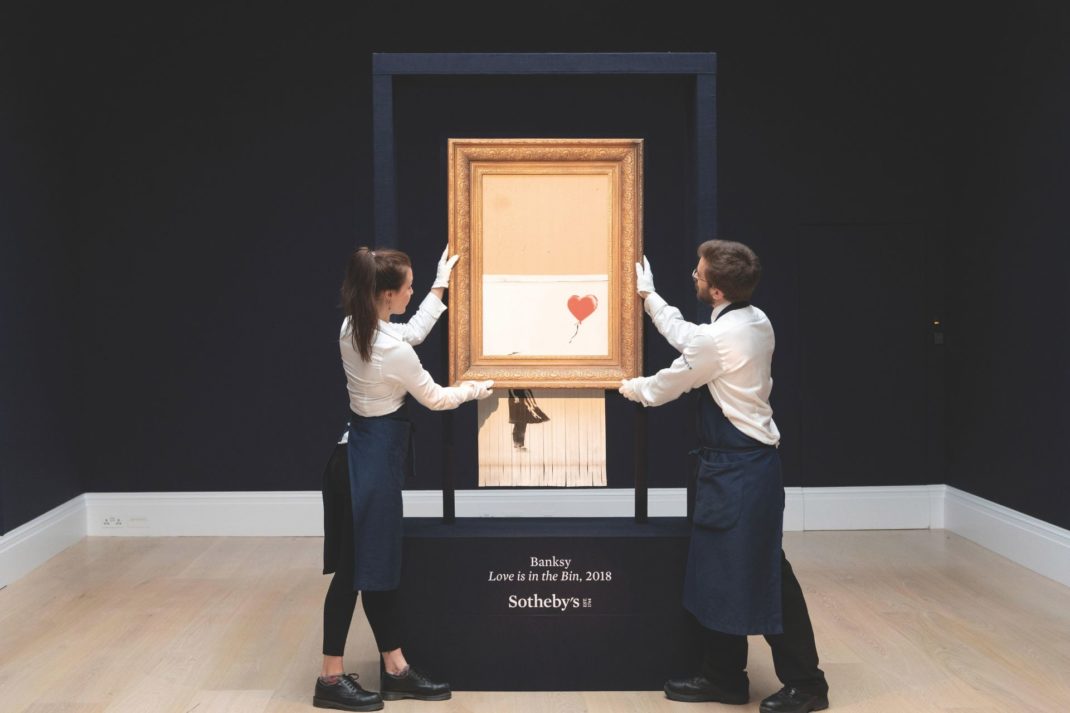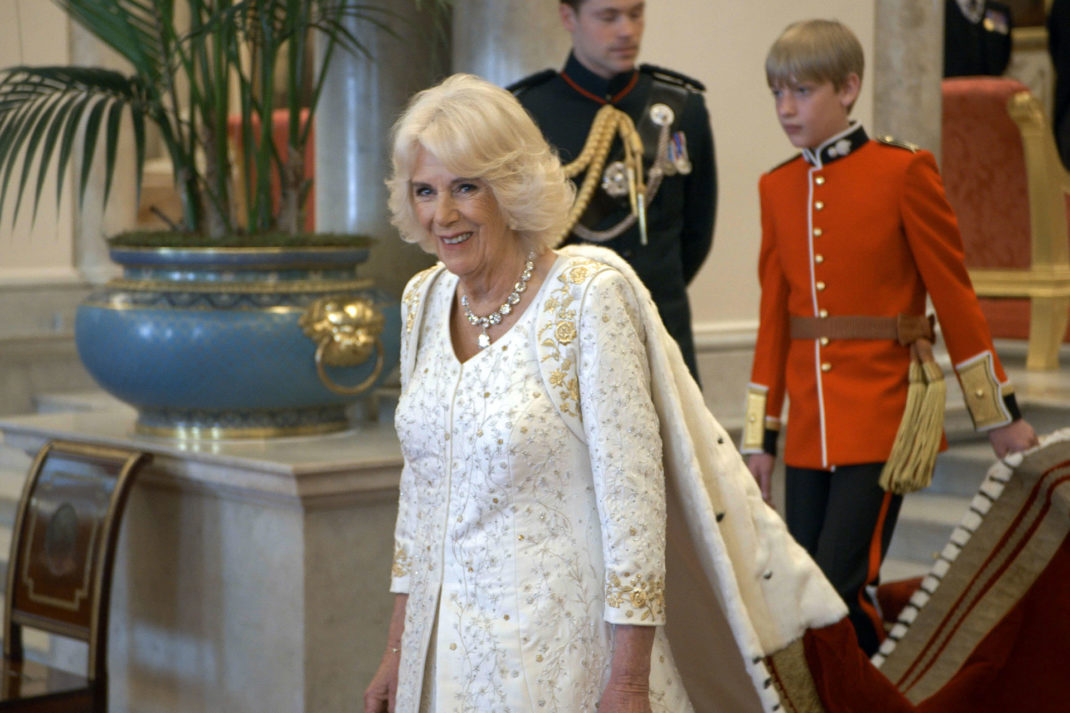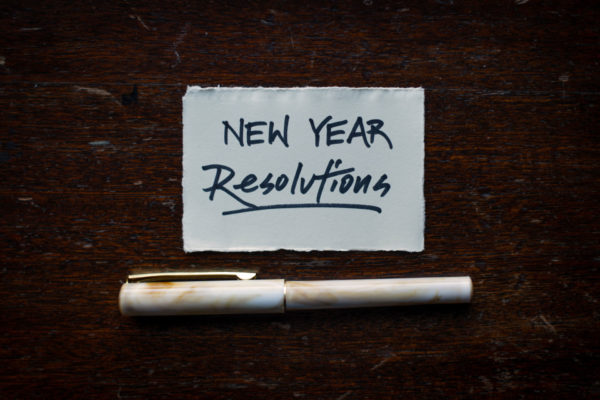A Priorities Coach Told Us How To Make (And Keep) A New Year’s Resolution
By
1 year ago
The trick? Not making a goal but setting a priority
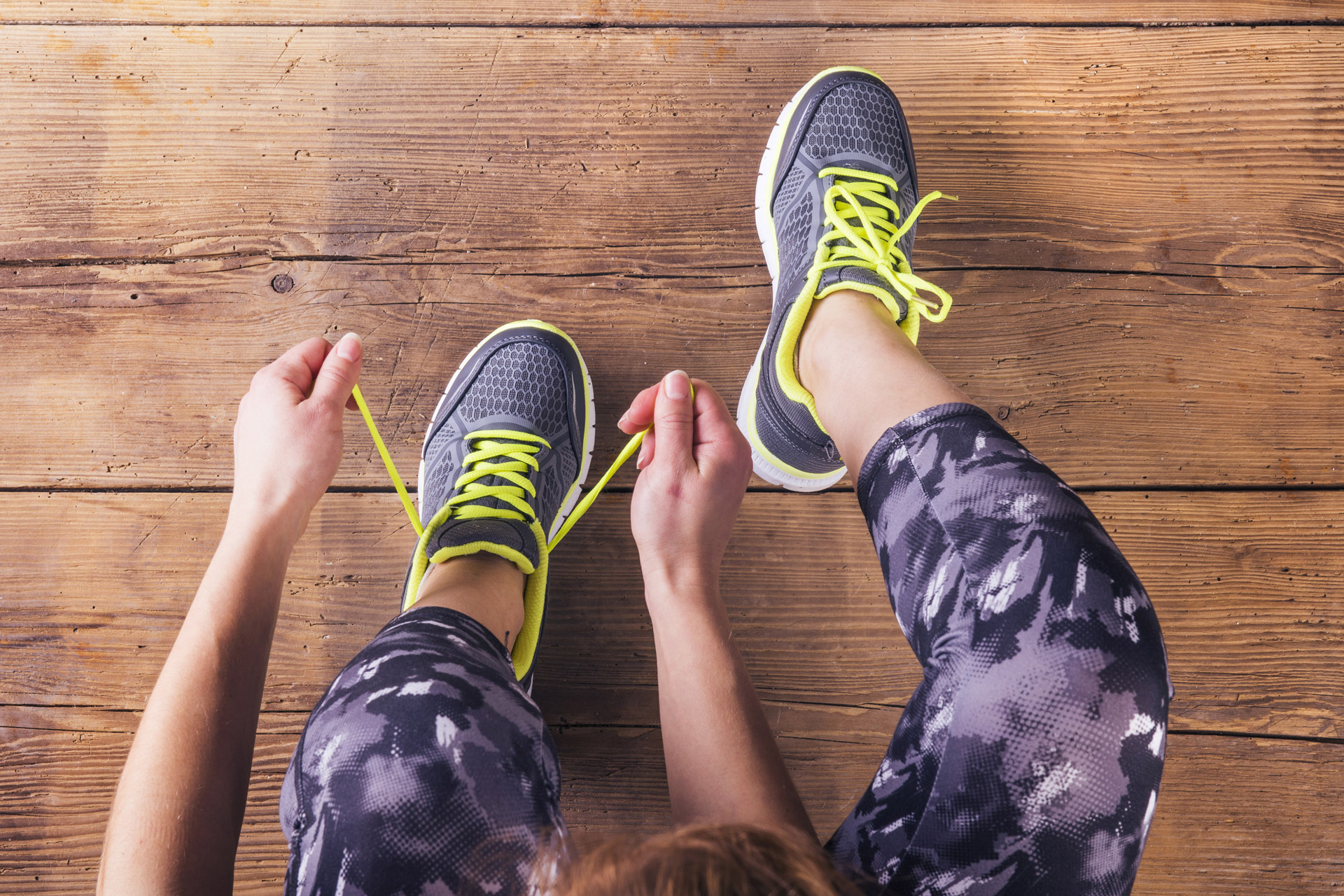
Lily Silverton is a priorities and lifecoach, as well as author of The Priorities Method (£30, available here). Word of warning: she’s not a fan of New Year’s goals, though – instead, she thinks your resolutions should be about shifting your priorities, and enjoying the process a little bit more.
A Priorities Coach Tells You How To Set Goals – And Stick To Them – In The New Year
Let’s start off by finding a bit more about you: how did you get into priorities coaching? You started your career as a journalist, right?
I was a journalist for 12 years, working at Hunger Magazine – and then I had what happens with a lot of people: a bad breakup. It prompted me to do my yoga teaching training. My editor was really supportive, and encouraged me to do it while I was still working full-time.
From there, I became very interested in the psychological aspects of it – how we can change our thoughts in order to better support our minds. I felt like so many of these tools I was learning were so simple, and I realised how much I’d wished I’d had them when I was younger.
This quickly led into life coaching training, training to help people achieve (and discover) their goals. Over time, I noticed I was always at the start of coaching asking people about their priorities and values. And that being the thing you needed to get clear and get right.
It covers so much. There are your priorities at a top level, but then also the people you prioritise; the thoughts; the habits; your entire life is essentially built up of what you choose to and are able to prioritise.
After maybe a year, I moved out of magazines – as I’d realised it was no longer my priority!
Let’s talk New Year’s Resolutions. First things first: when’s a good time to start reflecting on the year that’s just been?
I personally do my reflection in January, and I shut off at the end of the year with my children and husband. My husband and I will normally have a little chat on New Year’s about what our favourite moments from the year were, and what were maybe more challenging moments – and how we moved through them. Our kids now come into this conversation, too!
I did this when I was single, too. I’d take myself away, and make notes on these areas.
Beyond that, I’d think about what I’d love more of in the next year.
And how can other people try that?
Definitely make it into a retreat! Take yourself somewhere for a day to do this, a spa or a place where you can have a swim (if you like swimming). Ask yourself how the last year went, what your priorities are, what you thought went well, what didn’t go so well… Then consider the lessons you learned, your biggest failures and wins.
It doesn’t have to be in January – some people might prefer to do it later down the line, once the enthusiasm of the new year has died down a bit.
And New Year’s resolutions – are you big on them?
Not especially!
Interesting – is that because you are less interested in goals so much as process?
Yeah, for sure. I think the process is more important. I think sometimes goals are great – they can be really fun to zap around, and some people really thrive on them. But New Year’s resolutions always feel like they’re set up to fail – that they’re built in terms of a very arbitrary outcome, as opposed to building habits that sustain us for the year or the rest of our lives. I guess that’s why I’ve always shied away from them.
I would love to hear a bit more about how people might be able to approach less New Year’s resolutions – more how they could approach habits to take them forwards for the year? What kind of questions would you encourage people to introspect ahead of 2024?
The first step is self-reflection. We can’t know what we want things to look like unless we do the deep work of inquiring.
The kinds of questions I would ask are:
- How did the year go?
- What were the highs? Which moments made you feel really good?
- Thinking about your actual days, what do you actually do on the average one? And what would your ideal day look like? Compare the two, it’ll give you a really good indication of what is valuable to you (versus what you think you need to do).
From there, it’s worth giving a thought to all the little habits you have in your life (e.g. flicking on social media) and the behaviours that you exhibit day-in-day-out. Which ones serve you? Which ones are less helpful to you?
What you do everyday is the sum of your life.

If you hate running – you won’t do it. So probably don’t set a goal around it. © Getty Images
So rather than think up a goal, it’s best to start from habits and priorities. For example, if you want to get – quote, unquote – healthier, then it’s about building in habits and behaviours that support that but also support your day-to-day. If you hate running, that’s not going to help you get healthier, because you won’t stick to it for very long.
And that’s why most New Year’s resolutions fail: it’s because they don’t chime with the work behind the goal that gets you to that place. Identify more with the process, and you’ll discover you will enjoy each day. And it may take you a little bit longer to reach that goal or aim, but you’re much more likely to stick to it.
What’s the ideal place to do this priorities-planning and self-questioning?
The first bit of introspection is to ask yourself: what do you like? If you love yoga, for example, then your retreat day should include some yoga, or meditation, or whatever it is. If you love a walk, take yourself on one! Find a way to connect with yourself.
Perhaps it’s about going to a hotel for a night. Or popping into a library, because those are always lovely. The British library is always great, or a hotel lobby is a good place to sit and have an overpriced coffee for ages on a sofa. It’s about finding an environment that treats you just a little bit, but also feels meaningful – creating a small bit of ritual.
And how do we hold ourselves accountable in sticking with our ambitions and priorities (and dare I say it, goals)?
Accountability is really important. It’s one of the reasons I created The Priorities Method journal, to make coaching a bit more accessible to people. I’d noticed people might come to one-off workshops I ran, and then I’d speak to them three to six months down the line, and they’d done nothing further towards their ambitions. And that’s completely natural for all of us – life gets in the way.
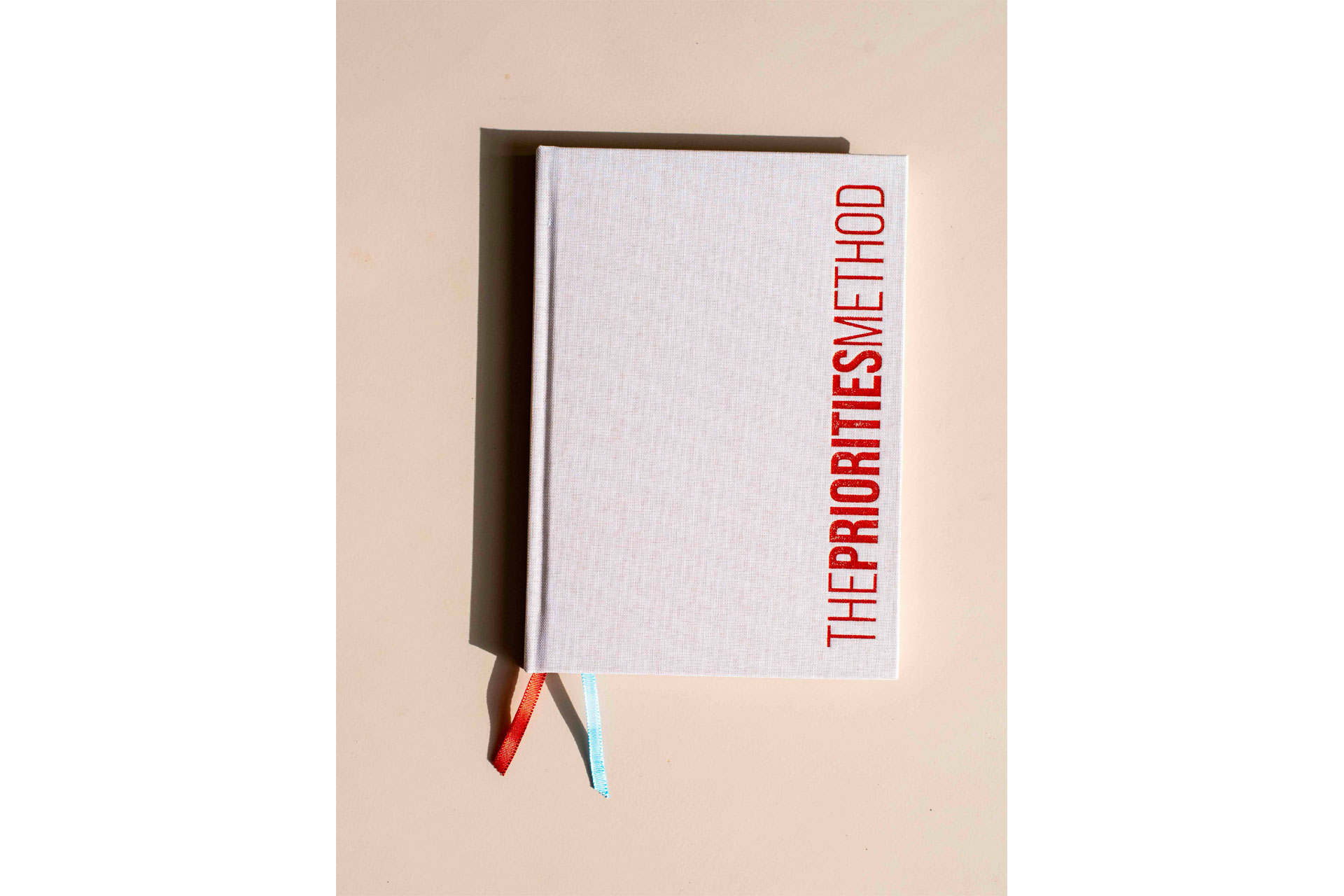
Lily wrote the priorities method to help more people access coaching
So an accountability buddy is great. If you’ve not got someone obvious for that, there are lots of apps these days. One app – StickK – links to your credit card and donates to charity if you don’t manage to reach any goals. You can set it up to donate with charities and orgs you don’t agree with, too, to give that extra little bit of incentive to stick to whatever it is you’ve chosen.
So are there any particular things you’d enjoyed in the last year that you’re personally building more into 2024?
I want to work in more time spent in nature – ambling without purpose. Just more time in nature that isn’t about moving my body, but about being around big trees, and things like that. I also really like cold-water swimming, so add that in. And then being more present with my children, zooming out a little bit on the hard times to enjoy it.
New Year’s Resolution Ideas – From The C&TH Team’s Own Resolutions
Build A Better Relationship With Exercise (Or Really Any Relationship With Exercise)
Tessa Dunthorne: I used to forge illness and injury notes in my parents’ handwriting to get out of sports classes at school. And yet, for some reason, I have signed up for a half marathon for March. I want 2024 to be my sporty era, the year in which I develop a healthy relationship to exercise – or maybe even the semblance of a routine. I’m currently aiming to go outside to walk or run four times a week, supported by yoga practise.
Kick The ‘Confessions Of A Shopaholic’ Life
Martha Davies: My new year’s resolution is to buy less. The dopamine kick that I get when a parcel arrives at my door is, quite frankly, rather alarming, so in 2024 I’m committing to only buying five things (or fewer!) brand new a la the Tiffanie Darke challenge. The aim is to shop second hand where I can but really to shake my clothes-buying addiction once and for all. My bank account will be all the better for it.
Get A Bit Bilingual Ahead Of A Big Trip
Charlie Colville: I’m in the middle of planning a big trip to Japan with a friend (it’s been on my bucket list for a really long time), so I’d like to learn some conversational Japanese in preparation. My first job of 2024? Finding a good teacher…
Yes, Yes, Yes
Anoop Bhuller: This is the year I try new things – in general. I’m going to try some new gym classes, go to new places, etcetera. I’m not making a list but I’m going to just go for things as they come up. It’s a yes year.
Turn Your World Upside Down (Literally)
Olivia Emily: More of a New Year’s goal than resolution, I’m hoping to achieve a headstand in 2024. It sounds a bit left field, but I’ve recently become a bit of a yoga addict, and watching my peers unfurl effortlessly into a pin straight headstand has my eyes bulging with envy every time. Also wrapped up in my fascination is an inherent fear of (a) being upside down, and (b) feeling out of control – and, to achieve a headstand, one must relinquish both. Eek. How can they shake off their inhibitions so easily? Strength and trust in yourself, I guess! I’ll be approaching the goal with strengthening yoga sessions every week. Crow pose? Check. Head stand? Let’s see what 2024 brings.
Daniella Laxton: It’s the year of the splits – expect acrobatics from the C&TH team.
Or… Don’t Do One (You’re Busy Enough Anyway)
Amy Wakeham: I’ve got one massive goal this year – plan my wedding. And that’s pretty much it. And also not really a resolution. There’s not much time for anything else around that! And that’s okay.
Parm Bhamra: I know if I say something, I won’t stick to it. The best resolution is not making one.

